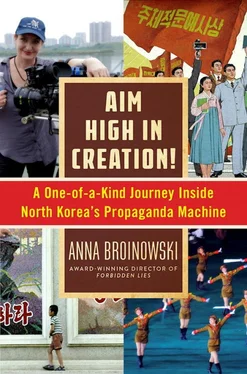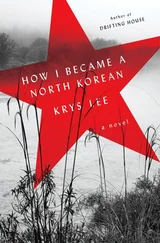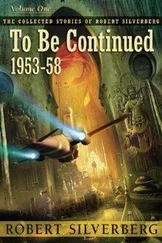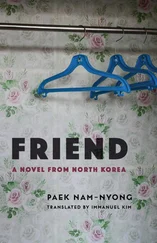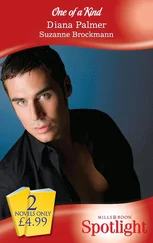North Korea to Aim Missile Test at Australia
A long-range missile which North Korea plans to test next month will for the first time be aimed towards South-East Asia and Australia. “If the test proceeds as North Korea has indicated, it will impact in an area roughly between Australia, Indonesia and the Philippines,” Mr. Campbell said.
ABC News, March 24, 2012
I returned to Sydney filled with a sense of impending doom. The rushes in my camera did not match the film in my head: North Korea was missing. When Kim Jong Un and his girlfriend were seen at a concert in Pyongyang, laughing at a Mickey Mouse on ice skates, the West saw it as a hopeful sign the new leader would be more open. But now Kim Jong Un was pointing rockets at Australia, it was clear he intended to carry on the family tradition. My chances of getting in had evaporated.
As North Korea’s nuclear posturing took Asia to the brink of war, the tensions at home exploded. My partner was spending repeated nights away and not even calling at breakfast. On our daughter’s eighth birthday, as she and her friends slept off a midnight feast in a jumble of blankets in her room, he told me about his new love. He wouldn’t tell me how young she was at first, but after an emergency counselling session, the truth came out. My immediate reaction was to laugh, but I was hiding my shock.
I sat on our rotting deck for three days, howling. But strangely resigned. We’d been battling for years, I realised; as far back as Forbidden Lie$. I’d criticise his driving when he collected me from the airport; he’d throw the awards I’d won out the car window in disgust. Over time, these petty assaults had built up a world of shared pain. I blamed his inability to realise his dreams. He blamed my inability to be kind. Our bodies had imprinted parallel trenches in the mattress, from which we lobbed psychological grenades at each other, but rarely moved. We were eviscerated husks. I felt no jealousy for my younger rival. A woman my own age might have been a threat. As it was, part of me was happy for him. He’d found someone to adore him, the way I no longer could.
Then reality hit. I didn’t have time to work through the five stages of grief: I had to get to Pyongyang. Without North Korean access, I wouldn’t get a production budget. Without a budget, I couldn’t take over the mortgage. My sunny daughter was not going to lose her home just because her dad’s priorities were elsewhere. So I fast-forwarded through denial, anger, and depression, cut to acceptance, pulled myself together, and hit the phone.
Going in as a tourist was still off the cards: Pyongyang was calling for South Korea’s president, Lee Myung Bak, to be “struck with a retaliatory bolt of lightning” and threatening to turn Seoul “to ashes.” I would not be welcome as an ally of the puppet state. My only option was to beg Alejandro Cao de Bénos to wrangle a media visa, whatever his price. Then my producer, Lizzette Atkins, who had been following my progress from the sanity of her Melbourne office, wisely intervened. I should call Nick Bonner one last time, she urged. What did I have to lose? He could only say no.
Koryo Tours’ grinning North Korean worker popped up on my screen, and Nick greeted me like we’d spoken yesterday. I was impressed—it had been over a year. I took a deep breath and told him the truth. My film wasn’t just about North Korean cinema, I said; I also wanted to use Kim Jong Il’s manifesto to make a short drama, in their style—and I wanted the advice of their filmmakers to do it. I wasn’t just taking; I was giving back.
Nick sighed. “Darling, why didn’t you tell me that in the first place?”
With rising hope, I confessed I’d already interviewed defected North Korean filmmakers. They’d been pretty negative about Kim Jong Il: was that a deal-breaker?
Nick gave a dismissive chuckle: “Why go to them, when you can go straight to the horse’s mouth?” And just like that, we were in.
The communist society to which we aspire is a truly popular society in which people of a new type enjoy rich and cultured lives as masters of nature. Writers and artists have a significant role to play in building this great society, a unique role, in which they are quite irreplaceable.
—ON THE ART OF THE CINEMA
WALKING TO PICK UP MY DAUGHTER from school, it’s hard to believe that in forty-eight hours, I’ll be on a plane to Pyongyang. When I tell the harried mums, they smile, then do a double take. “Wait. North Korea? Not South?” I can see skeletons and death squads flashing in their eyes. “That’s right,” I say, trying to stay upbeat. “Not good Korea, bad Korea. The one with the gulags.”
My daughter, on the other hand, is blasé. She’s used to my short trips to unusual places; she knows I always come back. To her, North Korea is a land where the hotels serve stale bread and the children don’t get toys for Christmas. Last night, she helped me pack according to the detailed instructions of Koryo Tours: a torch for the blackouts, gifts for the minders, and family photos to break the ice. She was fastidious about making sure I did not pack any “offensive foreign literature,” “devices with GPS capability,” or “weapons of any kind.” Who magazine and George Orwell’s 1984 have stayed out of my bag, along with my satnav and pocketknife. We have already bought Imodium tablets, in case I forget to boil the water and get Pyongyang belly.
Lizzette and I are meeting Nick in Beijing. He’s set up a three-day recce with North Korea’s elite filmmakers through his trusted Korfilm contact in Pyongyang, Ms. K. I’m only allowed to take happy snaps this time—but if I earn Ms. K’s trust, I’ll be let back in to shoot the film for real. It’s the Asian way of doing business: contracts mean nothing if you can’t look a collaborator in the eye. I’m used to it after dealing with the Kyoto Yakuza. They once granted me an interview because my production manager was sleeping with their boss. He was in jail, so he sent his tattooed henchmen. They told us everything we wanted to know about drugs, guns, and murder on two conditions: we hide their faces, and never show the interview in Japan. I agreed to all this over a cup of green tea in a hotel they were extorting. When the Australian Film Commission demanded the Yakuza sign a legal release form, they faxed back a haiku about cherry blossoms.
I’ve told our investors not to expect anything in writing from the North Koreans. An oral promise is what counts. If Ms. K decides to invite us back, the offer will be made during our trip, and probably over a meal. There will be no follow-up correspondence: Ms. K and her Korfilm colleagues, between them, share one heavily monitored email address. An access-all-areas film shoot inside the North Korean propaganda machine is too risky a proposition to negotiate in writing.
Nick has already warned us our mobile phones will be confiscated at the airport. I assume the “no GPS” rule is to stop foreigners taking in other devices that could trigger a bomb via satellite, or provide location stats for North Korea’s secret military facilities. The little pro-am camera I’ve chosen for the trip is too low-tech to speak to a satellite. But it’ll be my only chance to capture North Korea, if Ms. K pulls the plug on trip two. I swaddle it in a scarf and place it in my handbag on top of a pair of $10,000 German lenses. At least whatever I am allowed to shoot will look pretty on screen.
Tucking in my daughter that night, I’m relieved she only has a vague idea that her parents separated three months ago. My ex will stay with her the week I’m away, then return to dividing his time between our home and his “new office”—which she believes is the place he now goes to write. She’s happy with the arrangement, because Mummy and Daddy aren’t fighting any more. She doesn’t know that Daddy’s office also contains a girlfriend. She breathes calmly, flushed from another busy day, and I know we’ve done the right thing. We’ve protected her sense of stability. It will cushion her when it’s time for her to face the most difficult news of her young life.
Читать дальше
